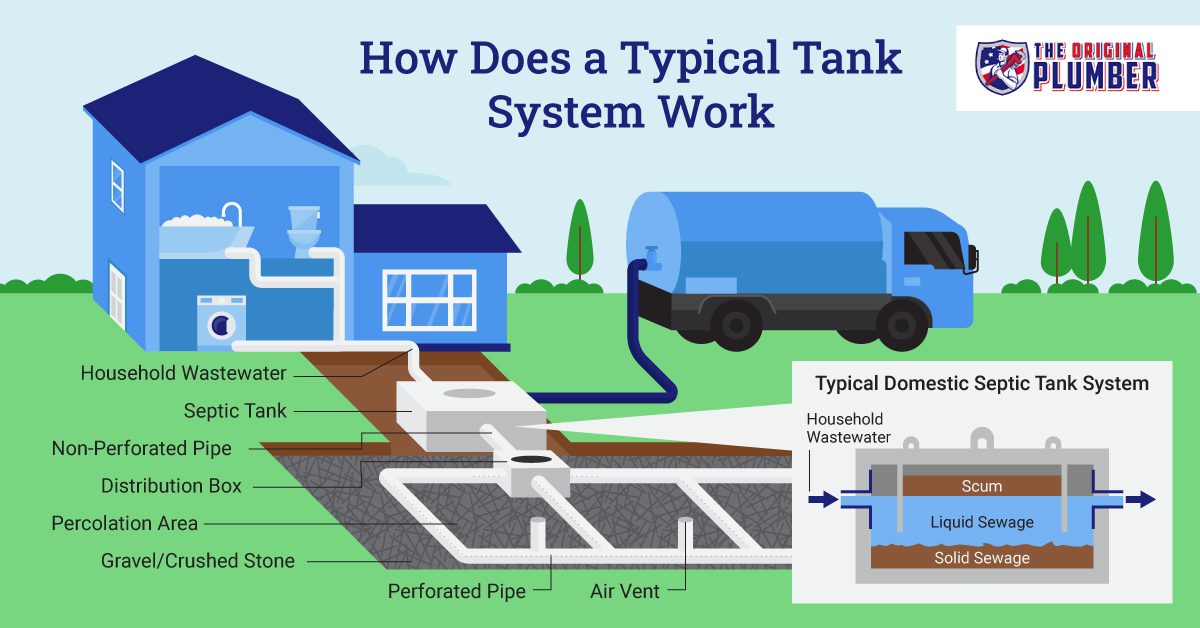
Essential Maintenance Tips for Your Septic System
Owning a home with a septic system comes with its responsibilities. Regular maintenance is crucial to ensure the system functions efficiently and avoids costly issues. In this guide, we’ll explore key tips for maintaining a septic system and preserving the health of your property.
Understanding Your Septic System
Before diving into maintenance, it’s essential to understand how your septic system works. Typically, it consists of a septic tank and a drainfield. Wastewater from your home flows into the septic tank, where solids settle, and liquids move into the drainfield for further treatment. Knowing this process helps you grasp the importance of proper maintenance.
Regular Pumping is Non-Negotiable
One of the primary tasks in septic system maintenance is regular pumping. Over time, solid waste accumulates in the septic tank, reducing its capacity and efficiency. Schedule professional pumping every three to five years to prevent solids from reaching the drainfield, which can lead to clogs and system failure.
Mind What Goes Down the Drain
Being mindful of what you flush down the drain significantly impacts your septic system’s health. Avoid disposing of non-biodegradable items, grease, and chemicals, as these can disrupt the natural breakdown of waste in the septic tank. Opt for septic-safe toilet paper and reduce the use of harsh cleaning chemicals.
Conserve Water to Alleviate Stress
Excessive water usage can strain your septic system. Implement water conservation practices, such as fixing leaks promptly, installing low-flow fixtures, and spacing out laundry loads. Conserving water helps maintain a balanced microbial environment in the septic tank and ensures optimal system performance.
Protect the Drainfield Area
The drainfield is a critical component of the septic system, responsible for further treating wastewater. Avoid planting trees or large shrubs near the drainfield, as their roots can infiltrate and damage the system. Additionally, refrain from parking heavy vehicles or constructing structures over the drainfield area.
Regular Inspections Catch Issues Early
Routine inspections by a professional are essential for detecting potential problems before they escalate. An experienced septic service provider can identify issues like leaks, clogs, or signs of system failure. Early detection saves you from costly repairs and ensures the longevity of your septic system.
Be Cautious with Additives
While there are many septic system additives on the market claiming to enhance performance, their effectiveness is often debated. Some experts argue that a healthy septic system doesn’t need additives, and in some cases, they may even harm the microbial balance in the tank. Consult with a professional before using any additives.
Maintain Accurate Records
Keeping accurate records of your septic system’s maintenance and service history is invaluable. Document pumping schedules, inspections, and any repairs undertaken. This information aids professionals in understanding the system’s health and can be crucial when selling your property.
Winter Precautions for Cold Climates
If you live in a cold climate, winterizing your septic system is essential. Insulate exposed pipes, cover the tank with an insulating blanket, and divert surface water away from the drainfield to prevent freezing. Winter precautions safeguard your system during harsh weather conditions.
Educate Household Members
Ensuring everyone in your household is aware of proper septic system care is fundamental. Educate family members about what can and cannot be flushed, the location of the septic tank and drainfield, and the importance of water conservation. A well-informed household contributes to the overall health of the septic system.
Maintaining a septic system is crucial for the longevity of your home’s wastewater treatment. Implementing these tips and scheduling regular professional services will keep your septic system in top-notch condition. For expert guidance and assistance, visit FundYourPurpose.org. Their specialists can provide personalized advice to ensure your septic system thrives for years to come.










